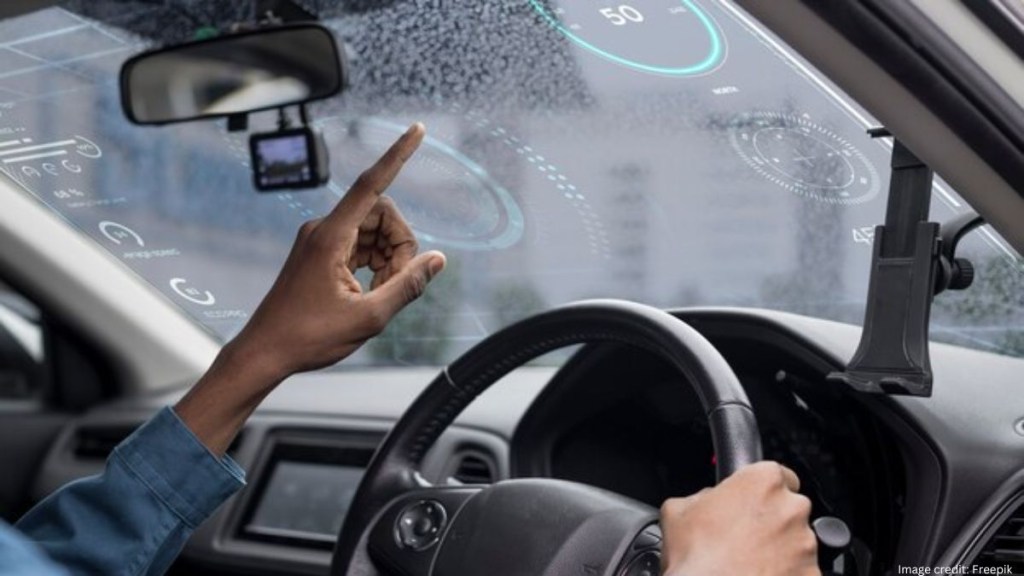We have all come to a point where we have all accepted that offline and the online world can cohesively co-exist. Especially in case of sectors such as automotive, phygital created on the basis of online-offline integration allows customers to research and configure vehicles online before physically test driving, bridging the gap between digital and physical interactions. Furthermore, the integration of sensors and connected vehicle data enables predictive maintenance and remote diagnostics, enhancing service efficiency and minimising downtime. “ Phygital platforms enable subscription-based vehicle ownership, providing access to a variety of vehicles based on individual needs. Moreover, phygital interfaces integrated into autonomous vehicles can offer personalised entertainment and navigation options,” Jayapradeep Vasudevan, chief business officer, Raptee, a motorcycle manufacturer,told FE-TransformX, adding that connected vehicle ecosystems can enhance convenience and safety by integrating with other smart devices and services.
Phygital space market
Phygital market will be worth $216 trillion by 2030, as per insights from LETA Capital, a venture capital (VC) firm. Apart from this technology giants such as Microsoft, Apple, Alphabet, Meta, Amazon, and ByteDance, among others, have collectively invested over $160 billion in the phygital space, as per insights from LETA Capital. As per several media reports, with the initiatives taken by Volkswagen, an automotive company, for creating an AI lab, it is believed that this could drive innovation in the automotive industry. “ The need for providing a phygital experience has been well recognised by original equipment manufacturer (OEM), as per our global automotive consumer survey, 73% of Indian consumers want to acquire their next vehicle either in person or partially in virtual mode,” Rajat Mahajan, Partner, Deloitte India, said.
About 77% of buyers prefer viewing product variations in 3D or augmented reality (AR), highlighting the increasing demand for immersive experiences not only in the automotive industry but also across various sectors, as per insights from AR Insider (2023) . Moreover, about 32% of consumers were willing to abandon a brand after just one bad phygital experience in 2023, as per insights from Conex Digital. This eventually emphasises the importance of creating seamless and engaging user journeys across both physical and digital aspects.
Co-existence of physical and digital
Industry experts believe companies like Twyn can aid in driving this growth besides investment. Phygital not only promotes sales and targets a broader audience but also ensures a balanced synergy between the physical and digital worlds, creating a more inclusive and engaging experience for all users. “ This can be the reason why OEMs today offer cutting-edge virtual reality (VR) and AR, product configurators, and online platforms to empower their customers with phygital solutions. It lets customers choose from various variants and colours and get personalised and consistent brand interactions,” Mohan Wilson, director, marketing, product and customer experience, Nissan Motor India, an automotive company, explained.
It is believed that with the establishment of its AI labs companies like Volkswagen have set the stage for further innovation, opening doors to endless possibilities backed by artificial intelligence. By leveraging artificial intelligence, automotive sectors will be able to enhance customer experience, expedite processes and simplify collaboration between the automotive industry and technology companies, among others. The AI lab is believed to serve as a globally networked competence center and an incubator for the development of new product ideas connected with artificial intelligence.
In the ever-evolving automotive industry, the emphasis on sustainability and safety has become crucial, driven by the urgent need to reduce carbon emissions and embrace eco-friendly practices.“Phygital’s virtual twin technology can revolutionise manufacturing, implementing measures that enhance efficiency, reduce energy consumption, and minimise waste. Also, phygital has the potential to enhance safety. Virtual twin simulations offer users a dynamic and interactive learning environment, allowing them to experience specific cars virtually,” Vivek Salvi, director, transportation and mobility, Dassault Systemes India, a French multinational software corporation, highlighted.
Phygital technologies bring numerous advantages to the automotive industry, such as heightened customer experiences and increased operational efficiency. However, there are also challenges, including cybersecurity risks, reliance on technology, workforce displacement, and concerns about consumer privacy. “It is imperative to tackle these challenges to leverage the potential benefits of phygital integration in the automotive sector.Overcoming these challenges can ensure a balance between technological advancement and addressing associated risks for sustainable growth and development,” Ajinkya Firodia, managing director, Kinetic Engineering, an automotive company, mentioned.
Critics argue while simulations and AR experiences offer controlled training scenarios, they may not fully replicate the complexities of real-world driving. The challenge lies in transferring skills learned in virtual environments to unpredictable on-road situations. “Furthermore, there’s a risk of over-reliance on technology, potentially leading to reduced situational awareness. Technical limitations, accessibility issues, and ethical considerations, such as data privacy concerns and biases in AI-powered feedback, must be addressed for responsible implementation,” Kanchi Patel, co-founder, Abzo Motors, an automobile company, concluded.








